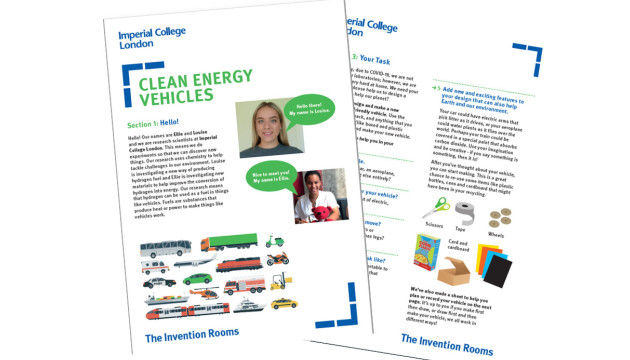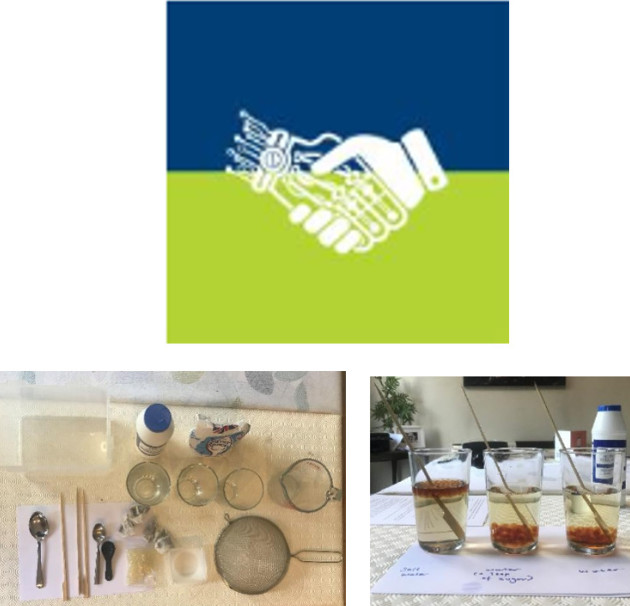Engaging society in times of change
After a year like no other, one where science and research have been in the spotlight, Engagement Week 2021 explored how we can better engage with society in times of change and crisis.
Keynote
Fozia Irfan - Director of Children and Young People, BBC Children in Need
Fozia is responsible for grant-making at Children in Need, ensuring that donations to the charity have the greatest impact on young people in the UK who need it most. She is also the founder of the DEI Coalition, a network of philanthropic funders committed to diversity and inclusion.
Engagement Week 2021 - Keynote with Fozia Irfan, BBC Children in Need
Other highlights
Engagement Week 2021 - In conversation: Resilience and crises in culture and engagement
We heard from other top speakers in cultural, engagement and communication professions including:
Rachel Mackay - Manager, Historic Royal Palaces, Kew and founder of the Recovery Room
Rachel's research, alongside her 20-year career in the cultural sector, has made her an expert in helping attractions bounce back from crises. Tune in to hear about resilience in culture and engagement.
Andy Ridgway - Science Communication Lecturer, University of the West of England
Andy has a background in journalism, working with the BBC, New Scientist and The Economist. He will share insights into how people make sense of information during COVID-19 and what that means for our communications.
Engagement Week 2021 - In conversation: Communicating science during a pandemic & Closing remarks
Dr Nicola Lang - Director of Public Health, Hammersmith and Fulham Council
Nicola is at the forefront of the pandemic response in the borough of Hammersmith and Fulham. She graduated in Medicine from Imperial and later specialised in public health, with a particular focus on marginalised groups.
Our interactive workshops explored some of the skills, ideas and understandings we have developed in the last year. Workshops included:
- ADAPT: Rethinking how we plan engagement activities in times of change and uncertainty
- COMMUNICATE: Interacting, presenting and collaborating online
- CELEBRATE: Sharing our successes in public engagement and beyond
- ACTIVATE: Finding time and motivation for engagement work
- GOING OFFLINE: Digital exclusion and working with community groups
Discover the full programme below or download the Engagement Week programme (PDF).
Lightning talks
Epidemic
Whilst working with the Patient Experience Research Centre, Management Trainee Fola Afolabi led an engagement project with local young people and a community theatre company. The young people were recruited to produce creative interpretations of their experience of the pandemic inspired by Imperial’s COVID-19 research. Find out more about this project and watch the resulting videos here.
Science packs in White City
 Coordinated by Andrew Brooks, the Community and Public Engagement teams have created and distributed 2,100 STEM-themed activity packs to families in White City. As well as activity sheets, created in collaboration with fourteen Imperial researchers, the packs contained all the equipment a child would need to carry out the activities.
Coordinated by Andrew Brooks, the Community and Public Engagement teams have created and distributed 2,100 STEM-themed activity packs to families in White City. As well as activity sheets, created in collaboration with fourteen Imperial researchers, the packs contained all the equipment a child would need to carry out the activities.
The project team worked closely with local community groups to ensure the pack’s reached children most at risk of missing out on STEM education. The packs have been hugely popular with demand only increasing. The team are now in the process of creating a further 1,000 packs to give out for the Summer holidays!
“It’s all doom and gloom at the moment and so the kids having something... and the parents seeing their kids happy or they’ve given them something, you know made them smile”
Future Geoscientists
Imperial graduate from the Dyson School of Design Engineering, Finn Strivens, worked with geoscientist Dr. Kathryn Hadler, to design a game that encourages young people to imagine futures related to geoscience. The project was supported with funding from the Societal Engagement Rapid Response Seed Fund and sought to connect young people with researchers. The game enables young people to imagine diverse futures in relation to geoscience, and aims to position geoscience as a creative, fun and future-facing field. The project also seeks to investigate what impact young people’s visions can have on the researchers and their science. The game is virtual but has been designed so that it be played in a face-to-face context once social distancing restrictions are eased. It is hoped that the game will be at the Great Exhibition Road Festival.
Running a summer school online
Rebecca Holloway and Signe Arias from the Outreach team ran the Sutton Trust Summer School entirely online. The summer school usually comprises a busy week-long schedule of academic sessions and evening social activities that aim to give high-achieving students from disadvantaged backgrounds a taste of university life. “The task was to transform this experience into an online one. And the key really was to ‘transform’ and not recreate the same activities.”
The team used Microsoft Teams and worked with ICT to create a bespoke environment that met their safeguarding requirements whilst enabling participants could interact with one another. To build community and create fun experiences, the team developed an online quiz and treasure hunt with student ambassadors helping to encourage conversation. One student said “Despite all being online, all the events ran smoothly and I managed to make many friends on the course.”
 Academic sessions are usually very hands-on but academic departments got creative to ensure interactivity despite being virtual. The departments of Chemistry and Bioengineering sent out materials for participants to make cheese as part of a live cook-along and conduct a hydrogel experiment using household items.
Academic sessions are usually very hands-on but academic departments got creative to ensure interactivity despite being virtual. The departments of Chemistry and Bioengineering sent out materials for participants to make cheese as part of a live cook-along and conduct a hydrogel experiment using household items.
“It was tricky to find out how engaged the participants were. There was a general reluctance to turn on cameras but they were more happy to contribute to the chat. We found that encouraging them to use the hands up and thumbs up features worked well, for example, they were asked to thumbs up a message in the chat when they had completed a certain task or to “like” questions they also want the answer to.”
One student said, “We were also given a virtual tour of the university and were given the opportunity to ask lots of questions about university life. I found this really interesting and it’s made me realise that Imperial College London is the university I want to study at!”
An undergraduate student takeover of Imperial Lates
Medical undergraduate Varsha Krishnan took part in the Public Engagement I-Explore STEMM module. As part of this she worked with course mates based around the globe to create content for one of the Imperial Lates Online events. They ran a “Day in the life of...” talk in which a researcher is interviewed to share insights into their work. Their video interview was with plasma physics research Dr Brian Appleby.
Varsha and her team used Teams and Zoom for their planning meetings with Varsha remarking, “I was travelling back from a hospital placement and I was still able to join a meeting on the tube!” She also recommends StreamYard as a very helpful tool for creating online events. Their video explored plasma physics in a way that was engaging and simple to understand and showed the person behind the science.
“I’m hoping to keep public engagement in my career. It’s something really important for me. I actually developed a resources for vaccinating dementia patients and what I learnt about science communication and public engagement from this module really influenced the way I put this together.”

Book one-to-one advice
Book a 30 minute one-to-one call with a member of the Public Engagement team to help answer your questions and discuss your engagement ideas.
Sign up to our newsletter
Join our mailing list to find out about the latest engagement news, training, funding and opportunities.
